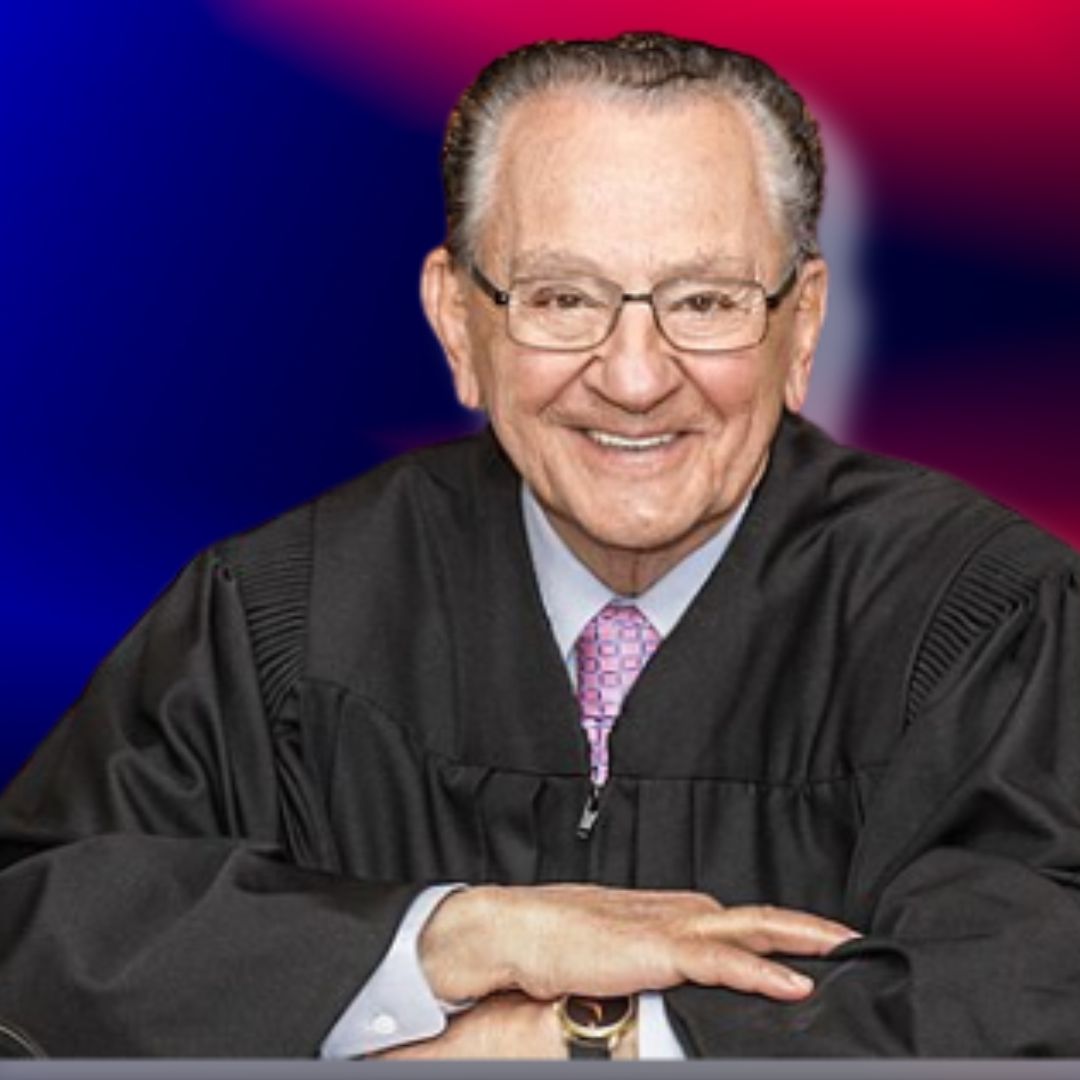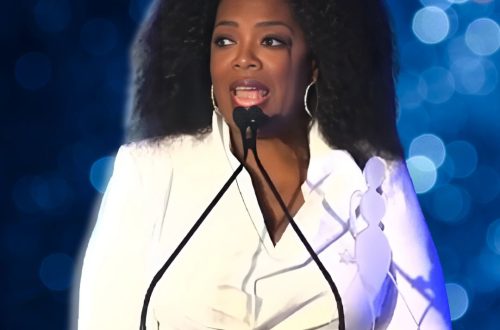He was never a Hollywood star, a billionaire, or a sports icon. Yet millions around the world called him America’s kindest judge. From a childhood in a working-class immigrant family to becoming a global symbol of compassion in the courtroom, Judge Frank Caprio proved that justice can be delivered with both fairness and heart.
Welcome to Famous Legends, where we explore the real stories behind the world’s most iconic people. Most judges are remembered for their rulings. But one judge from Rhode Island captured the world’s heart not with strictness, but with kindness. Frank Caprio, known as “The Nicest Judge in America,” showed us that compassion belongs in the courtroom as much as justice does. His story reminds us that true greatness isn’t about power — it’s about humanity.
Francesco “Frank” Caprio was born on November 23, 1936, in Providence, Rhode Island, to Italian immigrant parents (Caprio, 2018). Growing up in a modest neighborhood during tough economic times, he quickly learned the values of hard work, empathy, and respect from his family. His father, Antonio, was an Italian immigrant fruit peddler who worked tirelessly to provide for his family. His mother, Filomena, was a homemaker whose gentle spirit and faith instilled in Frank the belief that kindness was never a weakness, but a strength.
Frank often shared a story from his youth: as a boy, he would help his father sell fruit in the early mornings. Sometimes customers couldn’t afford to pay in full, but his father would let them take what they needed anyway, saying, “Someday, when they can, they’ll give it back.” That simple act of generosity left a lasting impression on Frank — that justice wasn’t just about rules, but about compassion for people’s struggles.
As a young man, Frank worked small jobs to support the family while excelling at school. Education wasn’t always easy, but he pushed himself, knowing it was his pathway to a better life. He graduated from Providence College, where he developed a deep sense of civic duty, and later earned his law degree from Suffolk University Law School in Boston (Suffolk, 1965). Unlike many who saw law as a way to prestige and wealth, Frank saw it as a calling — a chance to stand up for ordinary people and serve his community.
Frank Caprio began practicing law in Rhode Island and later became a municipal court judge in Providence in 1985. For most, that would have been a quiet role. But for Caprio, it became a stage for something bigger: showing the world what justice could look like when balanced with mercy.
His courtroom became known for its humanity. Instead of scolding or punishing people harshly for minor traffic violations, Caprio would listen to their stories. A struggling single mom, a veteran, or an elderly driver — each case was treated not as a statistic, but as a human being.
What set him apart was his ability to mix compassion with accountability. He often forgave fines when someone clearly couldn’t afford them, or allowed people to pay later if circumstances were tough. At the same time, he encouraged honesty and responsibility, making sure people understood that fairness didn’t mean a free pass — it meant justice with understanding.
That approach didn’t stay within the walls of Providence. Through the local TV program Caught in Providence, and later viral clips on YouTube and Facebook, millions around the world saw Judge Caprio’s kindness in action. From teenagers to grandparents, viewers were moved to tears by his gentle humor, empathy, and fairness. He became known internationally as “The Nicest Judge in America,” showing that even a small municipal court could leave a global impact.
Frank Caprio’s reputation went far beyond Providence when Caught in Providence, a local TV program that had quietly run for years, began airing nationwide and spreading online. What started as a community show soon became a global phenomenon. Clips of Judge Caprio’s courtroom moments went viral on YouTube and Facebook, racking up millions of views and drawing comments from people all over the world.
But what made the show so powerful wasn’t drama or scandal — it was kindness. Viewers saw something rare: a judge who laughed with defendants, encouraged children who came to court with their parents, and reminded people that dignity mattered more than a fine. His philosophy was simple but radical: justice should be firm, but never without compassion.
Some of his most memorable cases became symbols of humanity in action. In one famous clip, he invited a young boy to help decide his mother’s parking fine — turning a stressful moment into one of laughter and learning. In another, he forgave an elderly man who had broken a traffic law while rushing his cancer-stricken son to the hospital, a decision that moved millions to tears.
These weren’t just viral “feel-good” moments. They revealed a truth the world was hungry for: that mercy has a place in justice. In an era where courtrooms are often portrayed as cold and intimidating, Judge Caprio reminded us that the law could also heal, encourage, and uplift. His warmth and fairness earned him the title “The Nicest Judge in America,” and for many, he became a living reminder that humanity belongs in every profession — even the bench.
Judge Frank Caprio’s influence reached far beyond the walls of the Providence Municipal Court. Thanks to Caught in Providence and the viral clips that swept across social media, his words and actions touched hundreds of millions of people worldwide. What stood out wasn’t the cases themselves — often small traffic violations — but the way he handled them. In every story, people saw a reminder that kindness, patience, and empathy can cross borders, languages, and cultures.
He became more than a judge or a television personality — he became a symbol of what justice could be when rooted in humanity. In a time when authority figures are often associated with strictness or detachment, Caprio redefined leadership. He showed that mercy is not a sign of weakness, but of true strength — the kind that heals rather than divides.
Even after stepping down from the bench, Caprio continued to inspire. Through interviews, public appearances, and reflections on his long career, he reminded people of the values that guided him: fairness, compassion, and respect for human dignity. His legacy wasn’t built on fame, but on countless small moments where he chose understanding over punishment.
When news of his passing in August 20, 2025 spread, the response was overwhelming. Tributes poured in from every corner of the globe — from ordinary citizens who had never met him but felt touched by his kindness, to world leaders who praised his example of justice with a heart. His life became proof that you don’t need to be a president, billionaire, or celebrity to leave a mark on the world. Sometimes, the greatest impact comes from simply treating people with humanity.
Frank Caprio’s story reminds us that even in a world that often feels divided and unforgiving, kindness still has the power to cut through. His life proves that true greatness isn’t about how many laws you enforce, but how many lives you touch with compassion.
That’s why Judge Frank Caprio will always be remembered as more than a judge. He was a legend who showed us that mercy is not weakness, but strength — and that a little kindness can echo across the world.
References:
Caprio, F. (2018). Frank Caprio: Life lessons from the bench [Interview]. Providence Journal. https://www.providencejournal.com
CBS News. (2017, July 19). Judge Frank Caprio: The “nicest judge in America” on Caught in Providence. CBS News. https://www.cbsnews.com
Caught in Providence. (n.d.). About Judge Frank Caprio. https://www.caughtinprovidence.com
NBC News. (2025, January 12). Judge Frank Caprio, known as the “nicest judge in America,” dies at 88. NBC News. https://www.nbcnews.comSuffolk University Law School. (1965). Alumni spotlight: Judge Frank Caprio. Suffolk University. https://www.suffolk.edu




